by Alex Shtaerman
With multiple classic albums under his belt and a catalog that spans a number of eras as well as decades, Too Short reigns supreme as the undisputed godfather of Bay Area Hip-Hop – that much is certainly clear. However, when it comes to many of today’s young and fickle fans, few may know the whole story when it comes to one of West Coast Hip-Hop’s most legendary and influential pioneers. Recently honored by VH1 at the 2008 Hip-Hop Honors awards, Short has been a force in the rap game since the early ‘80’s and is showing no signs of slowing down as he prepares to introduce his brand new group, Town Bizness. With a lineup that blends the MC talents of Too Short and female rapper and songstress Silk E with the musical styling of Elijah Baker and Martin Luther, Town Bizness represents a fusion of Hip-Hop, Soul and R&B that comes complete with a five piece band. Alluding to the type of music he’s recorded with Town Bizness, Short explains: “it touches on a lot of social issues and personal things. It’s not the normal type of stuff that you’d hear on a rap record”. However, he is also quick to point out that the music is not “sad or depressing or preachy. It feels good when you listen to it”. The man who heard his first rap record in 1979 and was inspired to tell the story of Oakland after listening to Melle Mel’s vivid depiction of New York City on “The Message” is now here to answer your questions. Enjoy!
RIOTSOUND.COM: Your career began in Oakland in the early ‘80’s. When you initially started rhyming, what were some of the things that inspired you to pick up the mic at a time when Hip-Hop was still in its infancy?
TOO SHORT: Well, you know, I was just initially drawn to it because of the music world, that was one of my main loves at the time. I liked listening to a lot of music. I mean, I was always in music class playing instruments in the band and stuff like that. I always collected music, even as a child I would collect records and tapes, anything that I could get a hold of I would just keep it. So when I first heard Hip-Hop, it just kinda struck me early on. I probably heard rap for the first time in ’79 and by 1980 I was in my room making my own raps. I was writing raps and recording them through a little radio.
I think the inspiration came from just the thought that I could do it. I just thought I could do it. [In my mind] I knew I could do this and pretty much I just took to it one day. I don’t think there was any aspiration of a rap career or the thought in my mind that I even had options of making an actual record. I just thought of it in the way everybody perceived Hip-Hop back then. It was just like if you were to dress up for a talent show, you just wanna perform, you’re not trying to make a movie or record an album or get a record deal. You just want to do the performance somewhere for somebody. It was pretty much a hobby, the same as like breakdancing or DJjing or graffiti; like picking up any part of Hip-Hop in the early days, it was just for the fun of it.
RIOTSOUND.COM: Was there a competitive aspect to it for you?
TOO SHORT: Nah, I think the thought process pretty much was – I mean, there was no competition, nobody was really doing it. There wasn’t really another crew on the other side of town that we were competing with. The only guys who were probably pretty even were me and my rap partner Freddy B, we pretty much had it locked down in the Bay. We were those guys. So [the goal] was not to necessarily compete with another crew, like certain things that were going on in New York, but more or less like – there’s a dance at the YMCA Friday night, let’s go up there, put a song on and rock the crowd. Or there’s a house party in the hood the next night, on Saturday, so let’s go in there and rock the party.
In those days, me and my rap partner, we were local DJs, we would do jams at the real tough house parties. Like little apartments or little small house parties where it would really be like a thuggin’ session and some scary looking thing that most people wouldn’t go to, we would be the DJs [for parties like that]. So when we would DJ, we would definitely put on some songs and do some rapping too. That’s why people hired us, they wanted to see us rap and perform for them at the party. And even if we went to parties that weren’t our parties, we’d go to the DJ and say “put on an instrumental man, lemme get the mic”, most DJs had a mic. So it wasn’t about competition, it was more about the satisfaction of stepping up to any crowd and making them have a good time.
“we would do jams at the real tough house parties. Like little apartments or little small house parties where it would really be like a thuggin’ session and some scary looking thing that most people wouldn’t go to, we would be the DJs”
RIOTSOUND.COM: Your first major label release came in 1987 with Born To Mack, which is regarded to be a Hip-Hop classic. At the time of the album’s release you had already been making music for quite some time – so just to give the fans some insight – what was your mindset like while you were recording Born To Mack and how did the album actually come together in the studio?
TOO SHORT: With everything before the summer of ‘87, I was working with a label called 75 Girls and I had done all the stuff in the streets, you know, four or five years in the streets selling tapes. So when I got to the point when we were going to do Born To Mack, that was the first time ever that I was part owner of the company and I was the one who was calling 100% of all the shots in the studio. And it was the first time I had the freedom to say what I wanted to say. In the beginning, when I was doing the stuff in the streets, it was really raunchy. We would just put on an instrumental and talk through a little cheap microphone with an effects machine. And it was all just real street, straight to the cassette.
When I got with 75 Girls, we were working in really professional studios with some really professional equipment, the best stuff that was out. It wasn’t real big budget, but [the mentality was], the sky’s the limit. We still had the opportunity to go in there and make some quality stuff, but, I was told clearly to not curse on these songs because nobody curses in rap music and nobody wants to hear that and we’re never going to be able to sell that in the store. So for the few years I was with 75 Girls I was pretty much biting my tongue, just kinda writing songs about stuff that – if you listen to it, there’s no curse words.
Later on they ended up releasing a tape called Raw, Uncut and X-Rated. That was a homemade cassette that when I was no longer with 75 Girls they found and turned a cassette into an actual release. That Too Short tape is about as close as you’re going to get to what I was doing in the early ’80’s, Raw, Uncut and X-Rated, which they released so many different times under so many different names.
When I got to the point where we were going into the studio to make Born To Mack, I already had many of these songs that I ended up putting on the album. “Freaky Tales” and “Dope Fiend”, I already had the music and I already had the lyrics. It was just something that I told myself, and I told everybody around me – when we start this new company, this is the music I’m coming out with. I’m going for the streets, fuck the radio and fuck the mainstream, this is what we’re gonna do. And it worked.
RIOTSOUND.COM: You got a new group that you’ve recently put together called Town Bizness which features yourself, Elijah Baker, Silk E and Martin Luther. Town Bizness is not strictly a Hip-Hop group but rather a collection of musicians that have worked in a variety of genres. What prompted you to put the group together and how would you characterize the type of music that you will be making?
TOO SHORT: It started at a club in Oakland, I hired a band to play for me and it turned out pretty good. So we did it again in Oakland and got the same results, we got a really good vibe back from the crowd. I had a House Of Blues show coming up and I decided to take the band to the House Of Blues. And House Of Blues was sold out. We rocked with a real five piece band and we ripped it. It was crazy, like one of the best shows I ever did in my life; I definitely put it up in the top five, no doubt about it, of all time. After that we decided we should do more shows with the band. We did a handful more shows and each time we had success. So I was talking with the guys one day, Elijah and the other guys in the band, and I’m like – we should work on a project [together], so that when we perform, we’re known as a name and it’s not just Too Short and his backup band. [That way] we have actual songs that the band made and we could do Too Short songs too.
So initially it was supposed to just be me rapping and Martin Luther singing, because most of the time we played Martin Luther would be on the guitar but he would also be floating the hooks. He would play and sing the hook at the same time and it was smooth. So I was like, Martin Luther, he’s an artist, I’m an artist, we should do this. When we started recording, Elijah was the one who said “man, we can’t do this without Silk”. Silk started coming to the sessions and she was supposed to just guest appear on a couple of songs but she sings so good and raps so good that we wanted her on every song. She came in at the beginning of the project and pretty much it became so that we couldn’t do it without her. She was coming on some Lauryn Hill to the Fugees type shit, you know.
So we decided it would be the three of us, Martin, Silk E and myself on the vocals. And Elijah, he’s singing a lot on the album also, he’s pretty good with the vocals; he’s Dwayne Wiggins and Raphael Sadik’s first cousin and he’s been with Tony Toni Tone since day one. So it’s pretty much like a different environment for me, it was kinda like what I started off in with 75 Girls when you’d go to the studio and there’d be a studio full of musicians. As we made this album there was guys coming in with horns and drum setups and all kinds of shit. Everybody is a keyboard player or a singer; it was a different atmosphere for me but it was pretty much normal for them.
So me and Silk, we just made sure that the Hip-Hop element stayed in there and we didn’t let these guys just go too R&B on us. It comes off like some real funky R&B. You can definitely hear the Hip-Hop drums and the Hip-Hop influences but it’s clearly got soul and R&B on top of it. And I think that what we’re trying to do with this is really [create a situation] that those guys are used to, which is the ability to tour and have a project to tour on. We really want to get out with the band and do shows. We want to be able to do shows regardless of whether it’s a Black, White or Hispanic crowd. My music personally, the Too Short stuff, has crossed over through many different ethnic communities. And to step up with the band and actually have these feel good songs to go along with the Too Short raunchy stuff – plus I do have a number of songs that are also very musical songs with harmonies, songs like “The Ghetto” and “Getting A Lot Is Getting It Good”. These songs sound really good with a live band playing them. So not only can we give the crowd a good performance with the new songs, but we could also blend in the old stuff and you end up getting a really great show.
RIOTSOUND.COM: The new Town Bizness single is “Red Bull & Vodka”…
TOO SHORT: Nothing on the album sounds like that song…
RIOTSOUND.COM: That’s actually what I was going to ask you, because it’s definitely a bit of a club joint.
TOO SHORT: With all the [Town Bizness] music, none of it is like sad or depressing or preachy. It feels good when you listen to it, it touches on a lot of social issues and personal things. It’s not the normal type of stuff that you’d hear on a rap record. “Red Bull & Vodka” was the last song that we recorded and we aimed for that type of vibe because in order to paint a complete picture of a project that feels good, you had to have something where as soon as you push play you’d be like “this is a club joint”. Not just a song that may cross over into the clubs or end up in rotation on the radio, but a song where it’s like, ok, this is the party song.
We picked the name “Red Bull & Vodka” because, you know, it’s just a very popular drink. It was all premeditated man, we just wanted to have one little club banger and also, the most important part of it is we needed a song that we could lead off with and we didn’t want to come out with the really soulful stuff first. We wanted to first kinda get a vibe going with the “Red Bull & Vodka” song and then next year [2009] we’ll drop the album on you. I don’t think that track is too far away from what the album is about in terms of spirit, but it’s just the fastest song on the album, no doubt about that. The rest of the stuff is not that tempo.
RIOTSOUND.COM: What time next year should we expect the album to drop?
TOO SHORT: The album should be dropping in the second quarter. It’ll be before next summer.
“I’ve had some hoes and I just feel like the time and energy that I’ve spent making music makes it a much more profitable use of time and energy spent than being on a whore’s back trying to get some money outta her”
RIOTSOUND.COM: A lot of artists who started their careers in the early ‘80’s, as you did, often have trouble connecting with Hip-Hop’s younger generation. With yourself, on the other hand, you’ve always had an ability to evolve with new trends and embrace a variety of styles while at the same time maintaining your core fanbase. How have you managed to walk that line and keep that delicate balance intact?
TOO SHORT: I think that in my career – even during the first days that they ever put me in the studio – the first time I ever saw a studio was 1985 and there were all these professional musicians hanging around and everybody had a lot of insight as far as what professional recording was and I was pretty much a student. But yet, I was still a factor in the studio. I came in there and I was the one who was programming the drums and having a say as far as – “I don’t think that should be the baseline” or “the guitar shouldn’t go like that”. And when it was time to do the final mix, from day one I’d step in and [say things like] “the guitar shouldn’t play like that, you should take it out, break it down and put it back in right here”. ‘Cause, you know, I was always in band class and with musicians you interact. Even though I wasn’t around “a band” like a soul band or some kind of R&B band, I was still around musicians interacting, so I knew how it should go.
I knew musical notes and vocal notes and when they were wrong and when they were right. So, as my career progressed and I actually started to be the boss in the studio, I was always hands on. I know what good music is to a Too Short fan as well as to myself. And the entire time my formula has always been James Brown, George Clinton – keep it funky. Don’t go too far away from the funk, that’s pretty much a safe zone for me. When Hip-Hop was leaning towards the drums more or the drums and horns sound, I was always like, there’s gotta always be a kick drum and a bassline, that’s gotta be the foundation of every song.
I notice with a lot of Dr. Dre production, the funk is the backbone of Dr. Dre; he keeps it funky and I’m the same way. We were little kids in the ‘70’s when the funk bands were the shit, you know. So later in life when you got a guy like Lil Jon coming along with these big drums and this sound called Crunk and everybody’s bouncing and the energy is more intense, I’m in Atlanta absorbing this to the fullest. I’m inside the vibe and I’m at the clubs and I’m like, this is the shit. So I embraced Lil Jon’s production and developed a relationship with him which allowed me to not jut all of sudden change but to actually blend in at the same time as the music is changing. As the music is changing I’m blending with it and I’m there.
The tempo is getting a little faster, there are a lot of songs that are club songs as opposed to – I was basically in the trunk for most of my career. And then Lil Jon took me out the trunk and put me in the clubs. So it was no problem for me, as well as E-40, who made the same transition. [E-40] kinda messed around with Lil Jon a little bit, Rick Rock a little bit, and he changed his tempo up. And we ended up being just as much a part of the Bay Area Hyphy movement as the young artists. I think also, it’s important to keep in touch with not just your core fans but the kids. Like, what’s hot with the kids, what are they listening to? I’ve always been around kids who give me their opinion, from my little cousins to young artists that come around the studio.
My cousin, who’s now 22 years old, I remember the day he was at my house and he saw Lil Bow Wow’s video for the first time and he froze in his tracks and he thought Lil Bow Wow was the shit. And this was before Lil Bow Wow was the shit, he was just coming out. And just based on the reaction of the kids, I’m like, shit, this little dude [Lil Bow Wow] got it. I knew Bow Wow before his record ever came out. All the little kids would stop in their tracks and were amazed by Lil Bow Wow, his first video that he did. And he’s still holding it down right now too. So what I’m saying is that I’ve always been in touch with the younger generation as far as when I’m in the studio. There’s usually some younger people around, particularly females.
And I think they’re honest, they will tell you “I don’t like that shit”. I try not to spend a lot of time in the studio with people who kiss ass. You can recognize a kiss ass after a while, like a motherfucker that just compliments everything, like “oh, dem shoes are fly” or “damn, these rims are the shit” or “oh man, that song!” I know when I feel a song and I also know when I make a song and I don’t feel it, and then you got somebody else in your ear telling you “yo, that’s the shit!” But that doesn’t work. What I like is being around people who tell you like “yo, that one song you recorded last night, I like that song” and then the same person would say a week later [referring to another song] “that song you played for me, that sounded wack”. I like that shit.
RIOTSOUND.COM: You were featured in the Hughes Brothers documentary American Pimp and throughout your career a lot of the subject matter of your music has dealt with pimping as well as the pimp culture. How has the culture of pimping influenced you personally as far as your perspective on music and life and to what degree have you personally been involved with pimping?
TOO SHORT: Well, I grew up in L.A. and I’m pretty sure that at the time I lived in L.A. as a child there was a lot of pimps and hoes, but where I lived I mostly just saw the gang culture in it’s early stages. This was not like gangs that were visualized in the movie Colors, which pretty much started that wave of gangs from L.A. being imitated around the country. This was the early days of the Crips and Bloods. You’d see them but it wasn’t on a daily [basis] or like in a drive by situation. It wasn’t that deadly at the time. So I was used to seeing the rags and the Cripwalk and the gang signs and gang graffiti, and then I came to Oakland in the Summer of 1980 and that was the first time besides for in movies that I really saw pimps in suits, hookers in the back seat, prostitutes on the corner. There were prostitutes that went to my high school and pimps also went to the school.
Everything was right there in your face. There were also a lot of gangsters but they weren’t Crips and Bloods. Even some of the hardest gangsters would have a pimp swagger, you know. People were looking at the movie The Mack. It was filmed in Oakland and everybody had a relative that was in the movie that they had a story about, the day they were on the set or some shit. It was like pimp pride in Oakland, people were proud of the pimp heritage. So as I started rapping, and I wasn’t really looking for a style, I was just doing my own thing, it just hit me one day when I heard Grandmaster Flash and Melle Mel with “The Message”. “The Message”, that was the hottest shit in the street, probably in every city everywhere. I was listening to “The Message” and I was picturing in my head what it looked like and what it probably felt like to be in New York. I could see it from the words of the song. And I decided that I would tell the story of Oakland in my raps. I would talk about what Oakland was about and that’s what led me to continuously rapping about the pimp life.
I actually have a lot of friends where that’s their career, both sides, pimps and hoes. Over the years I’ve known a lot of people [in that profession]. And it’s almost like, in Oakland, pretty much no matter what age you are, you’re aware of the ins and outs and the reality of what pimping and prostitution is. Even right now to this day there’s a proposition about streetwalking females in San Francisco. They say that they’re spending over ten million dollars a year just arresting prostitutes and they want to free that money up for the police to do other things with it. Prostitution would still be illegal but they won’t be harassing the prostitutes, they’ll pretty much harass the tricks but the prostitutes get to walk the streets without being arrested. And I think they’re gonna pass it, I really do, because that’s how free willing the Bay Area minds are. Ten million dollars is being wasted harassing whores, that’s a lot.
As far as my personal involvement, prostitutes always come to me and ask me if I would be their pimp? And they always come to me and tell me that I’m the reason that they started in the first place. And you ask them “well, what does that mean?” And they say – well, my life was a piece of shit and I’m listening to this Too Short shit and it’s telling me, you know, that maybe my pussy might get me somewhere. And then they do it and their life changes. It goes from a piece of shit ass life to [being] a homeowner, having luxury cars, shopping for whatever you want. And they come to me and they thank me. I had a girl come to me one night just out of the blue and hand me a whole stack of 100 dollar bills, like a lot of 100 dollar bills. And she said “thank you”. So me, personally, I’ve had some hoes and I just feel like the time and energy that I’ve spent making music makes it a much more profitable use of time and energy spent than being on a whore’s back trying to get some money outta her. Basically, I would be a pimp if my job wasn’t so good.
RIOTSOUND.COM: You were recently honored by VH1 at the 2008 Hip-Hop Honors. What was it like be honored and acknowledged for your contributions to Hip-Hop culture, and also as a side note, do you feel it might be time for us to have a Hip-Hop Hall Of Fame? Just like Rock ‘N’ Roll has one?
TOO SHORT: The Rock ‘N’ Roll Hall Of Fame is also the Hip-Hop Hall Of Fame, because who we got in there? Grandmaster Flash, is Run DMC also in there?
RIOTSOUND.COM: I think Run DMC is set to get in, they’ve been nominated.
TOO SHORT: I mean, [The Rock ‘N’ Roll Hall Of Fame] is the real deal, you can’t replace that. If you have a lasting career of more than 25 years you could be inducted. So I think the Hall Of Fame is the Hall Of Fame, Rock ‘N’ Roll or whatever you want to call it. But VH1 is the unofficial Hip-Hop Hall Of Fame. Hip-Hop Honors is the unofficial Hip-Hop Hall Of Fame and its being given a lot of credit and recognition when that comes about [for an artist]. I mean, people really congratulate you and really think of that as a major honor. So in one sense I’m glad to be a part of it. It’s one of the Hip-Hop achievements that I’ve accomplished that I can be proud of myself for.
I don’t have to brag on it, I don’t have to be told “good job”, because I know that’s something that the majority of rappers are never gonna get, even if it’s from a music video channel. But on the other hand, in the Too Short world, I have long long long ago reached my hand over and patted myself on the back and I know exactly what I did and I know exactly what all the others did and I know who the great ones are and I know who the overachievers are and who are the ones that over-excelled and left their mark. When you name them, the list is not very long and I’m on that list and I know that for a fact. Everybody who stretched those careers out and fed those families and left their mark and songs that you love to hear ten and twenty years after they were made.
RIOTSOUND.COM: What can all the fans look forward to from Too Short in the coming months and beyond?
TOO SHORT: I’m definitely involved with projects with some artists. I’m doing some stuff with a guy called Dirt Nasty, a lot of people are familiar with him, also Mickey Avalon. I’ve been hanging out with those guys down in Hollywood. Those are like some White boy dirty rappers who were highly inspired by Too Short. They say to me “dude, you’re like the godfather”. I checked their backgrounds and I was like, shit, these guys is doing they damn thing. So I decided to get in the studio with them and make some songs. Me and Dirt Nasty, we got some nice joints together, so you should be hearing some of that in the near future. And also I might possibly do a joint venture with him and put some music out. So that is a major possibility.
I’ve also been working with a lot of younger artists around Oakland and the Bay Area and with Thizz Entertainment, Mac Dre’s label. We want to get together and do a bunch of compilations with like teenagers and the younger kids who really don’t have the outlet to put their music out, Bay Area artists. It’s kinda like fishing, you put it out there and if someone slips on a hit then we tend to it. But basically we just want to get them prepared for the business. Everybody is not going to make it but you gotta at least have a chance, you know.
Outside of that there is a reality show in the making, there’s an autobiography in the making; all this stuff will hit you in 2009. I got off of Jive [Records] in January of ’08. I’ve been in those office buildings hustling and hustling these dudes so that life after Jive is better than life on Jive. I feel like it’s time for a new career, a new label and independent solo Too Short albums, the new group, the TV show. After the autobiography I’ll probably write another book because I think that I have some how to pimping game in me as far as the industry goes and as far as rap music goes and as far as pimping hoes goes. I just wanna turn this whole Too Short thing into a franchise.
Check out the new Too Short and Town Bizness track “Red Bull & Vodka” at www.TownBizness.bandcamp.mu






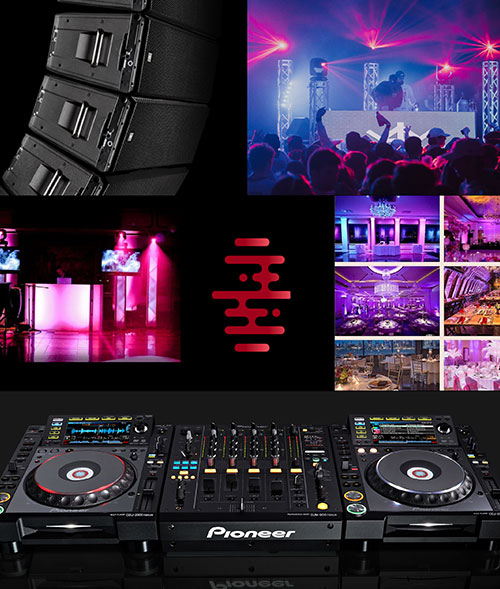


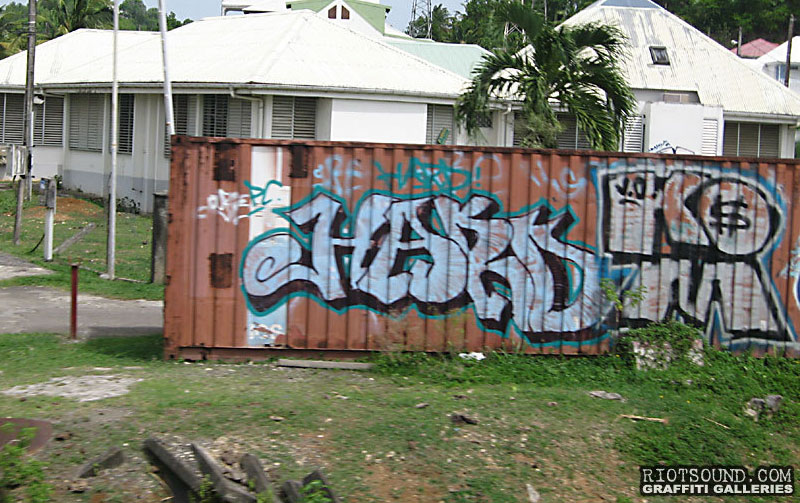
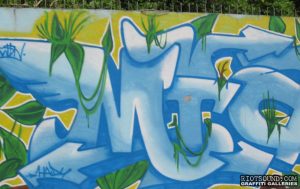
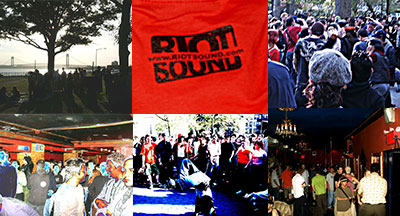
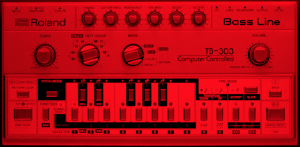













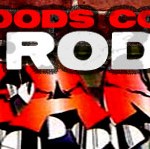


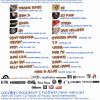
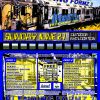


Comments
1 Responses to “Too Short Interview: Town Bizness”
It’s much easier to unasertdnd when you put it that way!